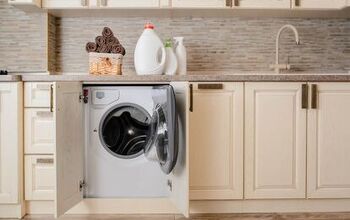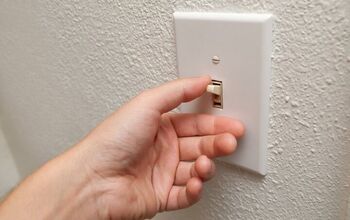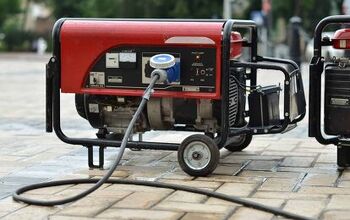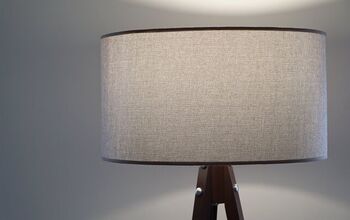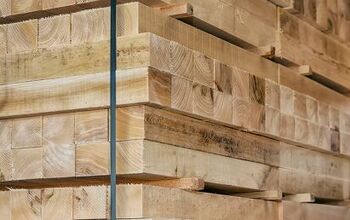Do Bamboo Sheets Have A Thread Count?

Some of us, when going shopping for our bed linen, would never take a gander beyond the sizing dimensions and are happy with whatever can keep the mattress clean, but after coming home with your set of brand-new bamboo sheets and comparing it with the ones at home, it’s hard not to notice the comforting softness.
Even at a glance, the most low-maintenance sleeper can tell the difference and might have a few questions about their new purchase.
Bamboo sheets do have a thread count, but they don’t work the same way cotton sheets do. They’re made from better quality fibers, and stretch much more than cotton or linen. So, a lower thread count on bamboo sheets doesn’t necessarily mean they’re worse.
Below, we will talk a bit more about bamboo sheets and their thread counts so you understand what you’re purchasing.
Do Bamboo Sheets Have a Thread Count?
The answer is yes, but they don’t work the same way as the cotton ones we usually buy at our department stores. Bamboo thread is made from longer and better-quality fibers that can be stretched much further than cotton typically would, adding to the natural comfort you can get from bamboo at even shockingly low thread counts wash after wash.
Think of it this way, a sheet of grass with more blades weaved into it wouldn’t be softer than a knitted pillowcase, even if the thread count on the sheet was higher than the case, because the materials you’re using for the sheet are of a much lower quality with less elasticity.
Does Thread Count Matter for Bamboo Sheets?
If the fiber is so much softer, you might be led to guess that what you’ve learned about thread count doesn’t readily apply here, and you’d be right.
The thread count of bamboo-based textiles can be much lower and still provide all the same benefits of sleeping on sheets of Egyptian cotton. Organic bamboo sheets with a thread count of 400 are just as soft as the most luxurious cotton with a thread count of 1000.
The difference is in the cut and the processing. As stated before, the quality of an organic bamboo fabric is superior because it’s carefully woven from the finest fibers, which are then subjected to a stringent production process to ensure maximum durability.
Cotton, on the other hand, is considered a lower-quality fabric because it’s often blended with other materials that can compromise the product, like unsafe pesticides that might harm sensitive skin.
With this in mind, you can safely rest assured that the comparatively lower thread count numbers for your bamboo sheets are nothing to worry about when it comes to lifespan, durability, and comfort.
What’s a Good Thread Count for Bamboo Sheets?
For the best night’s sleep, look for bamboo sheets with a thread count between 250 and 350. A sheet with 100% bamboo fabric at 250 feels just as soft as a cotton sheet of double the count, but the best bamboo sheets have a thread count of that or higher.
Just like with all textiles, the lower the number, the coarser and rougher the sheets will feel, so if you’re looking for a more handmade, natural vibe, feel free to give them a try. 200 or less is considered low quality, whereas 400 is considered the high end of good quality, but don’t be mistaken.
Thousands of threads only translate into a thin, cheap sheet instead of the silkiest touch to have ever graced your skin, and the coveted thread count is only one part of the picture when it comes to bamboo textiles. When it comes to thread count, great sheets are just as important as the grams of fiber in the yarn used to create them.
What is the Significance of Thread Count in Bamboo Bed Sheets?
Thread count is not the end all be all when it comes to these sheets. The quality of the bamboo used is another important factor, as well as how it’s processed.
Bamboo fiber can be spun into a soft, silky thread or a coarser, more rigid one depending on what kind of processing it undergoes. The softer threads are used to make silkier sheets while the coarser ones are used for everyday wear.
The number of threads used in bamboo fabric depends on the density and size of the bamboo being harvested. Some species are naturally softer than others, so they can be spun into higher thread counts without seeming overly thin or flimsy.
On the other hand, bamboo that’s naturally harder has to be spun into fewer threads to avoid a flimsy texture, but despite this, most all bamboo is considered so soft that it’s oftentimes blended with linen or cotton to artificially increase its strength, which inevitably decreases its quality. If you want to try to get as soft of bamboo sheets as you can, go for the ones made out of 100% pure bamboo fiber.
Pros & Cons of Bamboo Sheets
Though you’re probably coming here because you already have a pretty set preference, you’ve doubtlessly read all sorts of articles waxing poetic about the bliss of top-quality bamboo sheets.
You’re probably wondering what the catch is at this point, so let’s get down to brass tacks. What are the pros and cons of having a bamboo sheet set over a nice quality cotton one?
What Are The Pros of Bamboo Sheets?
Bamboo sheets are great because they’re environmentally friendly, soft and comfortable. They also absorb moisture better than cotton and are more durable, lasting for up to—and even a little longer—than ten years!
Bamboo sheets will get softer over time, unlike its cousin, which tends to get more and more coarse with each wash.
It’s also important to mention that the vast majority of cotton clothing is treated with chemicals in order to increase its lifespan, as well as pesticides during the crop phase, which can pose a health risk for babies or those with sensitive skin or allergies.
What Are The Cons Of Bamboo Sheets?
A big downside for bamboo-based textiles has to be the cost. Because the eco-friendly production methods increase the time spent producing the sheets, the market price for them can range up to the hundreds.
They also wrinkle much easier than their cotton competitors and require a more specific method of care and maintenance.
Depending upon the way the sheet was produced, you’ll have to follow a specific set of instructions for laundering each type of bamboo sheet, but each one will have the steps printed on their dry-cleaning label, so have no fear!
How to Identify Quality Bamboo Sheets with Good Thread Count
It’s surprisingly common for bamboo sheets to not advertise their thread count the same way cotton sheets do.
This can make it difficult for those of us that are used to judging our linens through count alone, but as we discussed before, there are many factors that go into the softness of bamboo-based textiles beyond their thread count, and keeping those factors in mind will actually help you be able to spot exactly what you’re looking for.
Production method, the exact species, and the hardness or softness of the bamboo, as well as the bamboo content on the packaging itself all can be giveaways to what quality of product you’re dealing with. Anything less than a hundred percent bamboo can be guaranteed to be less valuable, and therefore the thread count will be less intricate.
Moreover, the quality of the thread itself can be a good indicator of whether or not you’ve made a wise purchase. If it feels rough or scratchy, then there’s a good chance that it will shrink in size or pill after washing.
Bamboo is naturally soft and doesn’t require much processing before being turned into thread; this means that you won’t have to worry about going through as many steps in order for them to be processed properly and end up as high-quality material.
Is 300 Thread Count Bamboo Sheets Good?
Yes, in fact, it is right in the middle of an expensive purchase and settling for less. A good rule of thumb that will keep you making the right purchase with your bamboo sheets is to remember a thread count of 300 as a general, give-or-take standard to go by.
While it won’t tell you everything you need to know about the fibers used or the methods they were produced in, you can be sure that most bamboo sheets of this count are of at least decent quality and will have a much longer lifespan than the cotton ones fraying away in your cupboard.
How Long DoBamboo Sheets Last?
Bamboo sheets are durable and long-lasting next to materials like cotton or polyester. They can last anywhere from three to five years, depending on how often they’re used and how well you care for them, but the high-quality ones can last all the way up to fifteen if they’re taken care of properly.
If you wash your bamboo sheets too often or tumble dry them, they’ll wear down faster than if you take better care of them, so try to hand wash and dry them to keep your purchase around as long as possible and keep them safely stored when they aren’t being used.
Conclusion
Now that you’ve learned exactly what goes into the process of making bamboo textiles and what makes one a higher quality fabric versus a lower quality one, you’re well on your way to knowing how to properly care for your new bedroom set, and maybe even how to pick out your next purchase!
If you have someone in your life who loves the eco-friendly aesthetic, or maybe could use the breathable, hypo-allergenic benefits of bamboo sheets to get a better night’s sleep, you should do your part and spread the knowledge!

Heather is a passionate writer who loves anything DIY. Growing up, she learned everything from home repairs to design, and wants to share her tips with you. When she's not writing, she's usually hiking or searching for her next DIY project.
More by Heather Robbins



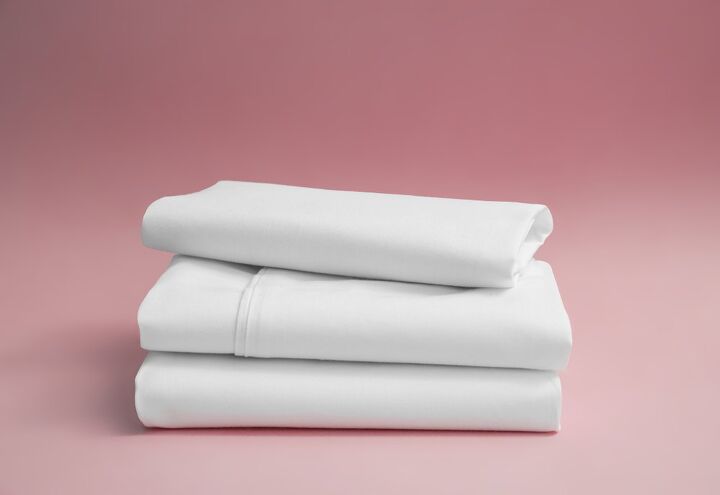








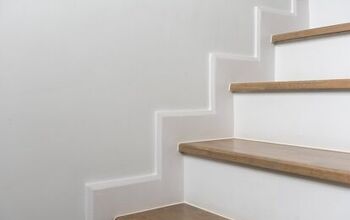

![The 10 Best Table Saws - [2022 Reviews & Buyer's Guide]](https://cdn-fastly.upgradedhome.com/media/2023/07/31/9070645/the-10-best-table-saws-2022-reviews-buyer-s-guide.jpg?size=350x220)
